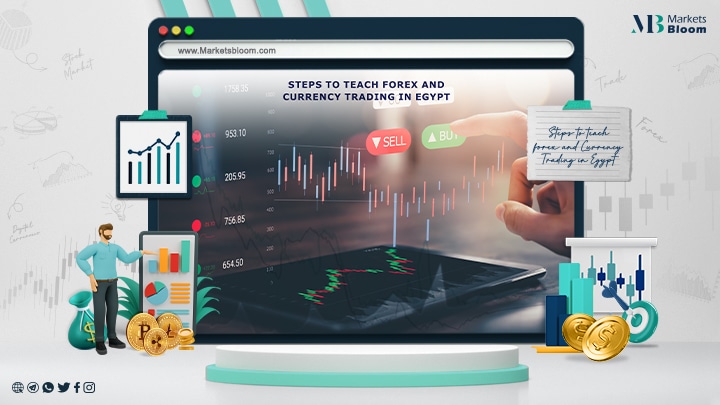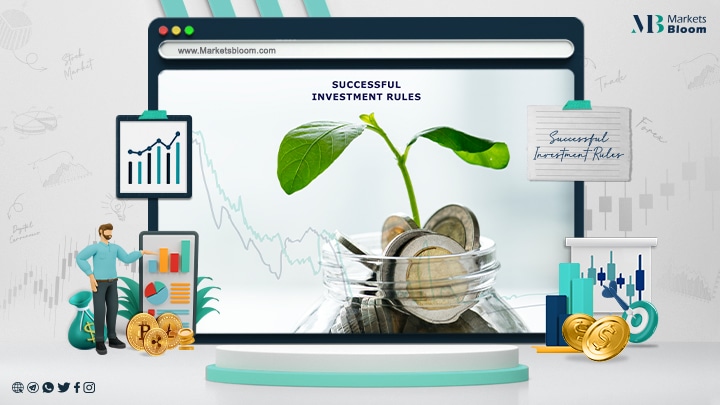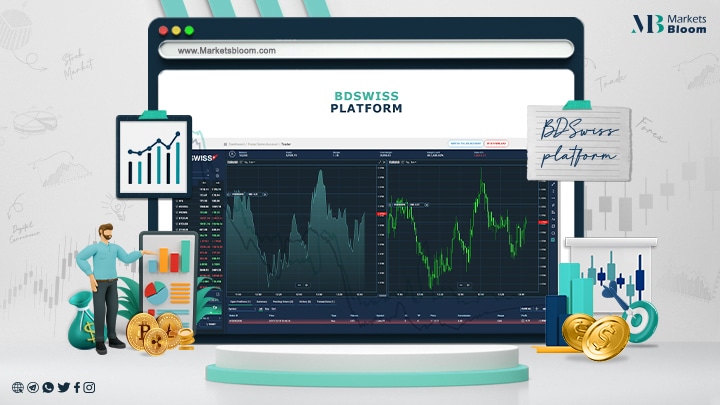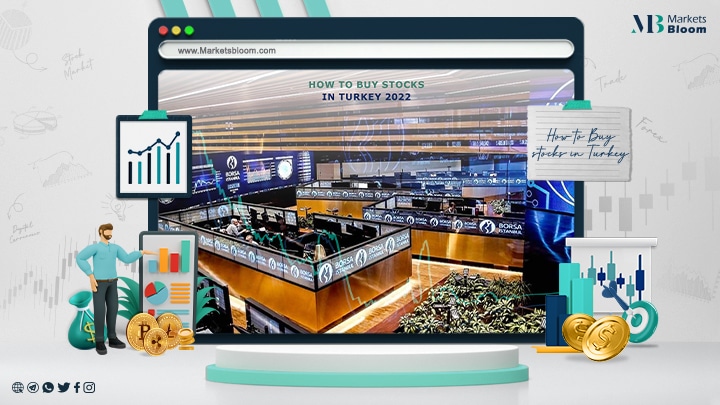How Do Forex Market Makers Work?
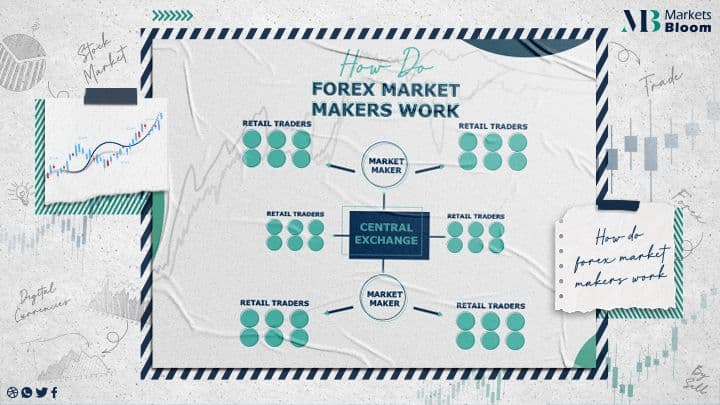
The fx market is a 24-hour market between Sunday and Friday, and is closed on Saturdays (e.g. it opens at 5 pm EST on a Sun, and closes at 4 PM on a Fri EST). The Forex market has no single central location of operation. Trading fx itself is a reasonably straightforward affair for any single participant.
Forex market makers – How do they work?
The fx market breaks down into a huge number of players of different sizes. They play a major part in fx prices.
Market Structure
At the top of the tree sits the interbank FX market. The interbank fx market contains the transactions conducted between the basic banks. One method of describing it is the wholesale level at which currencies are exchanged. It is here where we can see the main role of the fx market maker.
Each bank has dedicated market makers for each basic currency pair. They give prices at which the bank commits to buying and selling currencies from their peers in the interbank market. Even so, these prices are intended for the interbank market, they effectively permeate their way to the retail side of the market. We can say that the institutions that comprise the interbank market are the primary market makers in the FX market.
So what does a market maker do?
A Forex market maker essentially does 3 things:
Sets bid and offer prices within a specific currency pair
Commits to accepting deals at these prices within specific constraints
Takes the deriving exposure on to their own book
What are the constraints mentioned above?
Basically, the quote may only be good in a specific minimum or maximum size, and the price will only be good if dealt with in a timely manner. The 3rd point proves that a market maker is a counterparty to an fx trade.
In terms of taking this exposure onto their book, a market maker may subsequently select to hedge the exposure with another bank, if they are able to gain a favourable rate.
One method a market maker makes a profit is by seeing two-way business. If they see adequate flow at both sides of their quote, they can simply collect the bid-offer spread, while netting off their exposure. Now, the great banks see huge flows of foreign currency transactions from their operations around the world.
Because of this, they can reach an important profit simply by collecting this spread day after day. A dealer may also prefer to take a position in a currency at their discretion. They can do this by making a trade with another bank, or by pricing consequently, in order to attract trades in a certain direction.
The forex market makers method ….How do they set their prices?
Bank dealers weigh up several concerns when making their prices.
These include:
The prevailing rates being quoted elsewhere
Their own exposure, what positions they already have on their book
Their vision on the future performance of the currency pair
Volumes obtainable at the prevailing market rate, and the volume of the deal they are quoting for
Retail forex pricing:
The trades between the big banks form the centre of the forex market by volume. The banks’ continuous commitment to buy and sell currencies is a foundation of all pricing in the forex market. Despite the big volumes that go through the interbank market, a large part of forex participants do not have direct access.
Why is that?
One of the foundations of the interbank market is the credit relationships that the biggest banks have with each other. The banks buy and sell currencies between each other on this credit alone. Furthermore, deals in the interbank market are typically very big.
These aspects merge to prevent most players from directly accessing the interbank market.
Retail clients now willingly access the forex market. They do this via forex and CFD brokers that directly or indirectly tap into prices made by the big banks. This trend has been assisted by improvements in technology. Progress in these areas has led to a diversity of excellent electronic trading platforms.
What is the outcome of these platform advances?
Retail clients now have access to competitive forex spreads, and trading has become very convenient.
So how do forex brokers offer prices to retail clients?
The way forex firms operate varies, but pricing tends to ultimately be derived from the same familiar players. Namely, the big banks who operate as prime brokers for these firms. Some firms may act effectively as a broker, hedging off their exposure immediately with their liquidity provider.
While others may take some of the exposure onto their own book. But here’s the main part: generally, they do not make their own prices as a true market maker would. For any certain currency, a retail
forex firm might offer a total price. This would be the best offer that they have access to via the market making counterparties that they hedge with.
An alternative method that firms allow their clients access to the forex market is via Electronic Communications Networks ( ECNs). An ECN collected bids and offers from banks, institutions, and other traders into an order book. If you make a trade, the ECN will match you against the very best price available. ECNs are typically very fast and offer transparent systems with very tight spreads.
Pros and Cons of market makers forex prices:
Some people hate the notion of a market maker, taking the view that they are somehow calling the market against them. A market maker is not going to quote a price that doesn’t fit their position, but they eventually quote a two-way price. This means that there is a very limited amount that the price can be skewed before an arbitrage opportunity opens.
The overarching European Markets and Financial Instruments Directive (MiFID) requires UK FX firms to be committed to offering the best execution on their clients’ behalf. Before this level came into play, some firms might have twisted their price in their book position, but this cannot happen under best execution.
When discussing market makers, the bottom line is that they are the pillar that the forex market is built upon. Beyond this basic contribution of effectively enabling the forex market to function, they do offer some other benefits as well. They offer uniformity and liquidity to the market, with their continuous commitment to take the opposite side of any deal.
Market makers at the central banks are aware of large, and therefore potentially market-moving trades, before the wider market. The type of information to which a market maker may be privy, but is unavailable to the market as a whole may include:
Institutions rebalancing portfolios
Hedging requirements
Changes in risk appetite.
Such flows may affect the short-term trend of forex prices. Some display this as providing an unfair advantage to market makers. A market maker would discuss this aid to their trading strategy as a benefit that stems from the service they provide.
High-frequency trading (HFT)
High-frequency trading (HFT), is a way of trading that applies strong computer programs to transact a huge number of orders in fractions of a second. In addition to the high speed of orders, HFT is also characterized by high turning rates and order-to-trade ratios.HFT became popular when exchanges started to offer incentives for companies to add liquidity to the market.
The major benefit of HFT is it has improved market liquidity and removed bid-ask spreads that previously would have been too small. Learn more about high-frequency trading from the below free webinar, hosted by an experienced trader – Jens Klatt.
Choosing an appropriate forex market maker strategy
Whether you prefer the uniformity of pricing from a market maker or the various spreads of an ECN is up to you. You may find that your strategy or style of trading dictates what you use. If you are a scalper or an Algo-trader, you may find that ECN pricing is suitable for you.
About Marketsbloom:
Markets Bloom is a trading academy consisting of former trading industry professionals. We aim to help all types of traders looking to trade in the financial markets.
By registering with us, you will gain amazing insights into common issues traders face as well as how to instantly improve your trading approach. Our team of experts will be with you every step of the way on your journey to becoming a better trader.
For more information on our services contact us
Our Facebook page: Markets Bloom

